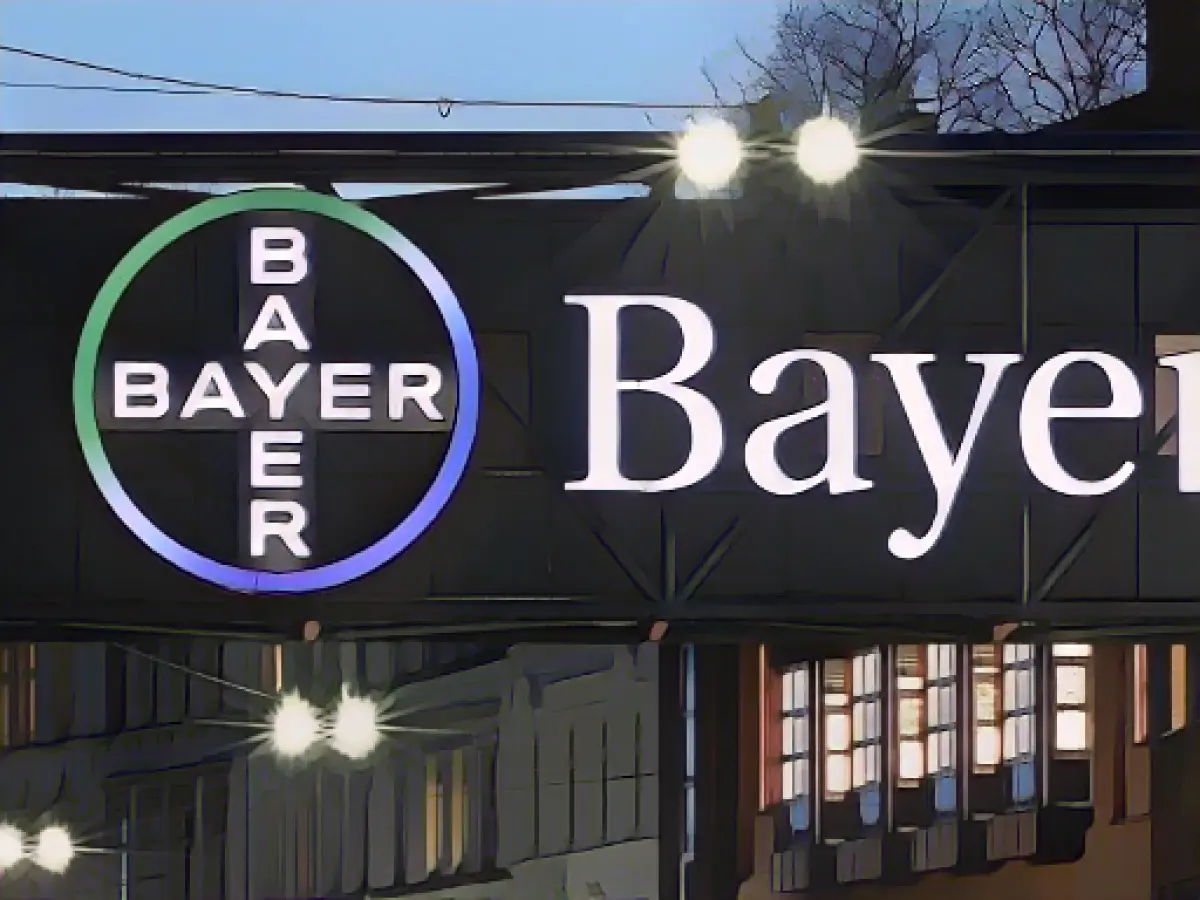Bayer stops important drug study
Problems are piling up at the pharmaceutical and agricultural company Bayer. First, a US jury recently ordered Bayer to pay more than 1.5 billion US dollars (1.4 billion euros) in a glyphosate trial, then came bad news from the pharmaceuticals division on Monday night: a study on a preparation called asundexiane was terminated prematurely.
The anticoagulant was a great source of hope. It was to become the successor to the previous bestseller Xarelto. The company's current situation was viewed with great skepticism on the stock exchange, with the share price plummeting by a quarter by early Monday afternoon.
According to the company, the efficacy of Asundexian is inferior to that of the standard treatment. Bayer will continue to analyze the data. The company had only recently extended the Phase III trial program for asundexiane. According to earlier information, the anticoagulant should generate peak annual revenues of more than five billion euros in the long term.
Successor sought for Xarelto
In a phase III trial, the testing of a drug is already relatively advanced. If such a study turns out well, approval is within reach - and with it the prospect of booming business in the billion-euro market of an ageing society, in which the demand for such drugs is increasing. Xarelto has long been such a bestseller - older patients in particular take the drug long-term to reduce their risk of stroke and other health risks.
Pharmaceutical companies develop a large number of preparations, but only a few of them make it to the approval stage. They need blockbusters to finance their work on other drugs and thus remain innovative and competitive. In the first nine months of this year, sales of Xarelto packs generated three billion euros for Bayer, a good quarter of total pharmaceutical revenues. It is the biggest sales driver among the drugs.
Patent protection expires
However, an end to the highly profitable business with Xarelto is foreseeable. Patent protection will gradually expire in the coming years, and this has already happened in Brazil. The financial outlook for this business is correspondingly negative, with Xarelto sales falling by 8.4 percent year-on-year in the first nine months of 2023. Bayer attributes this to price pressure from competitors. They are launching copycat products on the market that are significantly cheaper.
The pressure is correspondingly high to be able to launch a better alternative as soon as possible. Hopes were pinned on Asundexian, and Bayer's management was confident. In the annual report for 2022 published in February, the drug was cited as a key example of innovative products in which "encouraging progress" had been made. The work on asundexiane was "one of the largest Phase III projects we have undertaken to date", it said. But hopes for the potential blockbuster are now bursting like a soap bubble.
Glyphosate verdict worth billions
A lawsuit had already brought bad news for Bayer on Friday: a jury at the federal court in Jefferson City (Missouri) ordered the German company to pay a total of more than USD 1.5 billion to three former users of the glyphosate-based weedkiller Roundup. The plaintiffs blamed the product for their cancer. Juries in the USA often award plaintiffs large sums, which are later significantly reduced by judges in many cases. Bayer was then convinced that the verdict would not stand. The company will appeal.
The problems surrounding the glyphosate-based weedkiller Roundup were brought into Bayer's company in 2018 with the Monsanto takeover, which cost more than 60 billion dollars. This was followed in the same year by a first judgment against the DAX-listed company, which set off a wave of lawsuits in the USA. In 2020, Bayer launched a multi-billion dollar program to settle the majority of the lawsuits - without admitting liability. Bayer has already settled the majority of the lawsuits.
In an effort to mitigate the financial impact of losing patent protection for Xarelto, Bayer had been heavily investing in the development of Asundexian as a potential successor. However, recent data analysis revealed that Asundexian's efficacy falls short of standard treatments, potentially diminishing its revenue potential in the billion-euro market for age-related health drugs.
In the realm of agriculture, Bayer's glyphosate-based weedkiller Roundup has been the subject of numerous lawsuits due to allegations of cancer-causing properties. A recent US jury verdict ordered Bayer to pay over 1.5 billion US dollars to three former users, adding to the mounting challenges facing the pharmaceutical and agricultural giant.
Source: www.dpa.com








